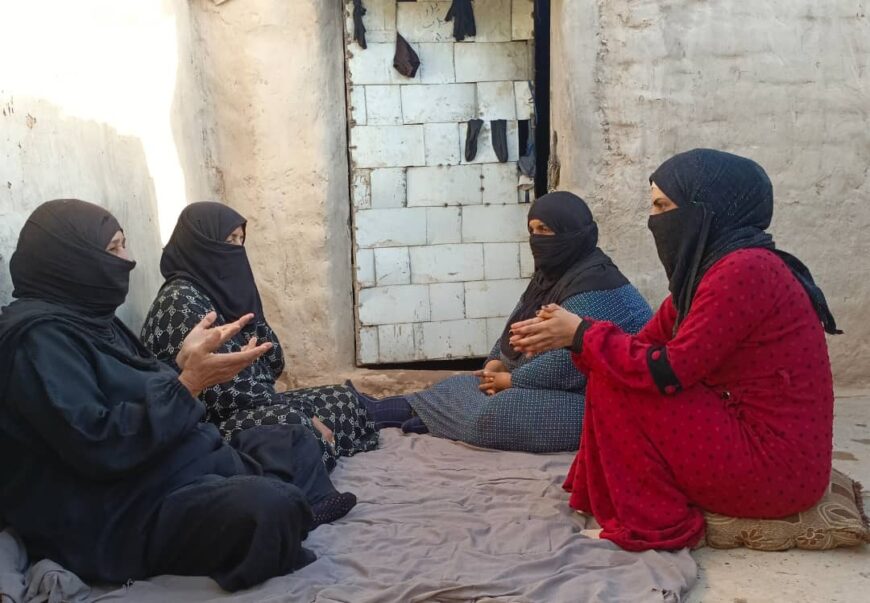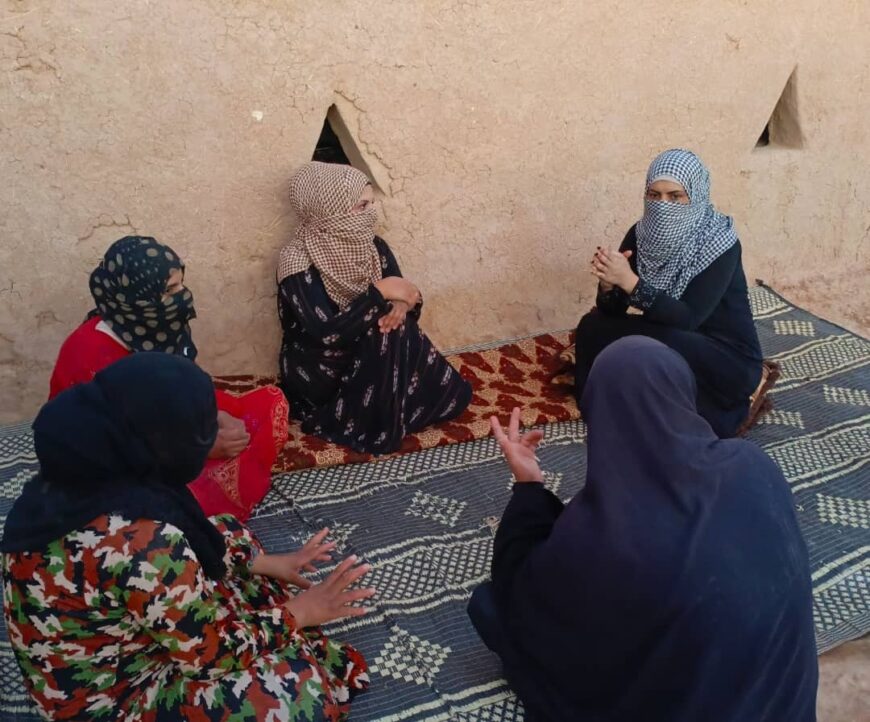Heba is a 36-year-old woman living in Abu Khashab camp, located in a remote area of Deir-ez-Zor governorate in Syria. She has suffered repeated displacement due to the war, during which she also lost her husband, leaving her to raise her child alone. Through Acted’s ECHO-funded project in the camp, she started volunteering in the women and protection committees and is now supporting women and girls, as well as camp residents, in vulnerable situations in Abu Khashab.
Defying the hardships of war and displacement
After the fall of Bashar al-Assad’s regime in December 2024, more than seven million Syrians still remain displaced inside their country. One of them is Heba, who arrived in Abu Khashab camp in 2019.
Before arriving at the camp, Heba lost her husband, leaving her to raise her son on her own. Living conditions in the camp proved to be very difficult, with a lack of healthcare, food, education, and protection services. This hardship was further compounded by a re-marriage that exposed her to an abusive husband that regularly beat her.
Despite these hardships that she was forced to live through, Heba stood up for herself. She left her husband and returned to her family that also lived in Abu Khashab camp.
Heba then learned about Acted’s efforts to improve protection in the camp. Under the ECHO-funded project, Acted provides multisectoral lifesaving services to 434,000 individuals in and out of camps across Syria, including Abu Khasab camp. Through high quality camp coordination and camp management, Acted ensures coordination between partners providing services in the camp and improves camp infrastructure to ensure safer living conditions for residents. When Acted started awareness raising on protection issues, and created protection and women committees in the camp, Heba decided that she wanted to be a part of this effort to support vulnerable people’s protection and to build the community’s capacity to address protection challenges.
Becoming a community leader and a pillar of support
Heba thus joined the protection and women committees in the camp. She volunteered with the committees for three years and participated in trainings conducted by Acted on issues such as women’s protection, gender-based violence, the prevention of sexual exploitation, and child protection. She learned how to explain their rights to other women and supported them to seek help when needed.

I transformed from a simple member of the community to a community leader capable of effecting real change.
Thanks to her experience and skills, Heba was able to receive a position as a Protection Facilitator with Acted. She now conducts regular field visits with a group of women to monitor protection risks and talks to marginalised people to listen to the challenges they are facing. Heba then conveys the problems to the relevant stakeholders or directs vulnerable residents to service providers that can help them.
Through her work, she faces numerous challenges and a lack of basic services in the camp – realities that constantly remind her of the importance of her work. Each day, she witnesses the tangible impact of her efforts on the lives of others. Thanks to her dedication, vulnerable camp residents feel supported and cared for. Heba has now becomea role model for other women and girls in the camps.
I feel my work makes a difference when a girl comes to me and says, ‘I want to be like you’
Standing up for marginalised people’s rights beyond the camp context
Due to the contextual changes that happened in Syria after December 2024, many displaced persons are leaving the camps to return to their areas of origin. Acted continues supporting those remaining in displacement sites. The skills that camp residents learn through their involvement in community committees, as well as through trainings organised by Acted, make a difference in people’s lives beyond the camps. Several committee members have confirmed that if they leave the camp and return to their areas of origin, they will continue their efforts to raise awareness among women, girls, and marginalised groups and educate them about their rights.
Heba has expressed a strong intention to return soon as well. She hopes to apply the knowledge and experience gathered through her involvement in the women and protection committees in her area of origin, to continue contributing to her community.
